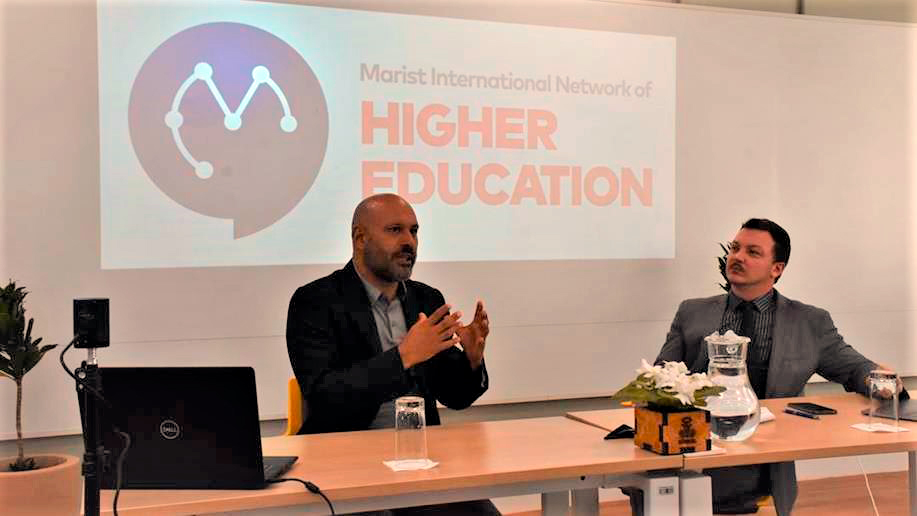
Marist University Management is the topic of a webinar promoted by the Network of Higher Education
Representatives from more than 10 countries participated in the webinar held on November 21st, promoted by the Marist International Network of Institutions of Higher Education (IHE). The webinar had as its topic our Marist University Management.
Brother Marcelo Bonhemberger, Vice-President of Institutional Identity at the Pontifical Catholic University of Rio Grande do Sul (PUCRS) and President of the Network Board of Directors, was the first speaker at the event. He emphasized that the main goal of the Network is to provide its members with quality training and discussion on topics that have a positive impact on our society. “We are all connected to the legacy of Saint Marcellin Champagnat. Transforming the world through education is our mission,” he said.
Afterwards, Br. Marcelo introduced the General Vicar of the Marist Institute, Brother Luis Carlos Gutiérrez. He thanked the work that each person carries out through different strategies, and he also congratulated the organizers for the initiative and choice of the topic under discussion. “Big challenges, big opportunities. Management asks us to always carry out a review, a very careful observation of the world so that we can build and transform. Let us be courageous to explore new and interesting possibilities”, reinforced the General Vicar.
After the welcoming speeches, it was time to introduce the webinar’s special guest: the Colombian anthropologist Santiago Uribe Rocha. He is one of the people responsible for the exponential development that Medellín has had in the last 30 years. In the 1990s, the city was considered the most violent in the world. In 2013, it won the title of most innovative on the planet, according to the Urban Land Institute.
“I am here today to share with you how the University of Medellín played a fundamental role in the cultural, urban and social transformation that took place in the city. It is social innovation as the basis for transformation”, said the anthropologist.
Uribe, as he is known, has been the director of the Medellín Resilience Workshop since 2013. They are part of the Rockefeller Foundation’s 100 Resilient Cities network. “For 10 years, a network of 100 cities has been exchanging knowledge – and staying alive that way. All cities are represented by institutions, and many of them are universities”, commented Uribe.
The anthropologist also pointed that, in order for changes to be significant, it is necessary to start at the end. “We start from a fundamental principle: if the State only arrived at the periphery with the police, we need to restore dignity to the citizens who live in this place with the best we have.” For this reason, states Uribe, most libraries today are located on the outskirts. “Today, we have 26 parks and libraries spread across the city.”
A collective intelligence was created in Medellín, and then actions began to become everyday practices. “The social is the beginning and the end, it is the central axis of transformation, because it connects humility, silence to listen to others and culture – which is what remains”, comments Uribe.
After 30 years, these practices became public policies, formulated and created by the university. “The university documented this transformation”, concluded the anthropologist.
Marist International Network of Institutions of Higher Education
The Marist International Network of Higher Education consists of the current union of 22 institutions that, in harmony with the premises of the General Administration of the Institute of the Marist Brothers in Rome, seek to create connections of synergy and action in their areas of mission.
Founded in 2004, this network aims to create opportunities for partnership, formation and joint projects, strengthening action in higher education in more than 10 countries.
